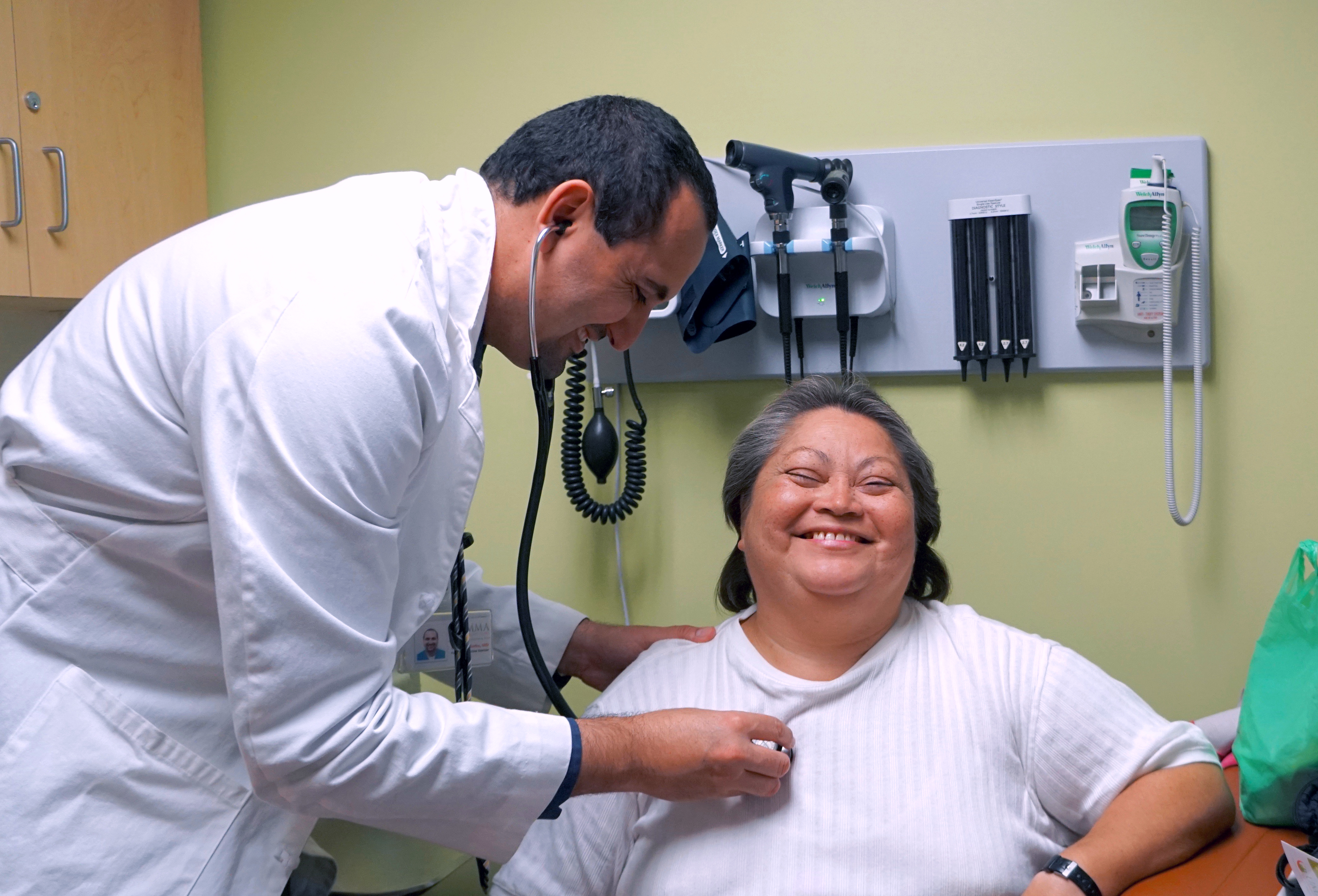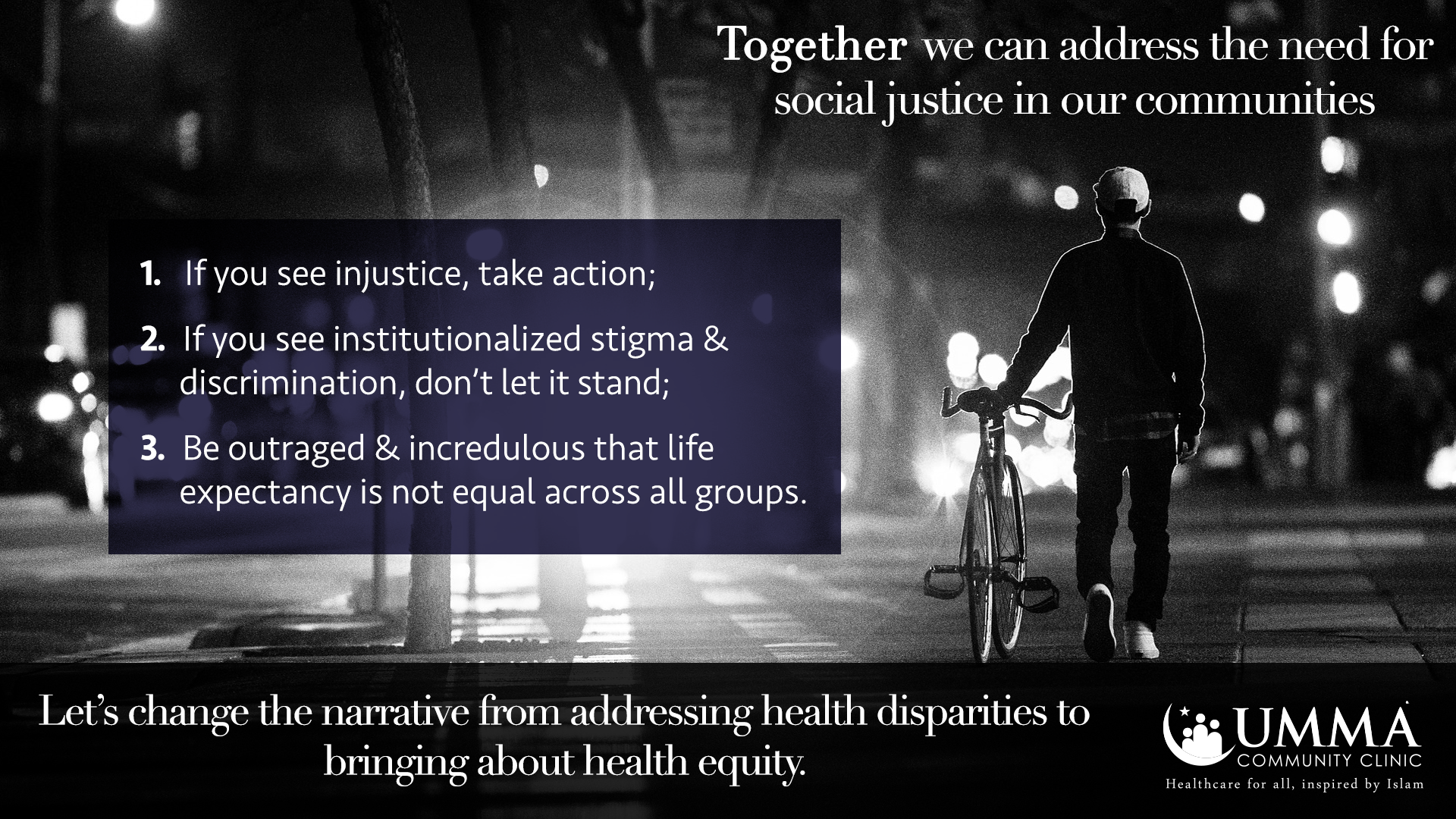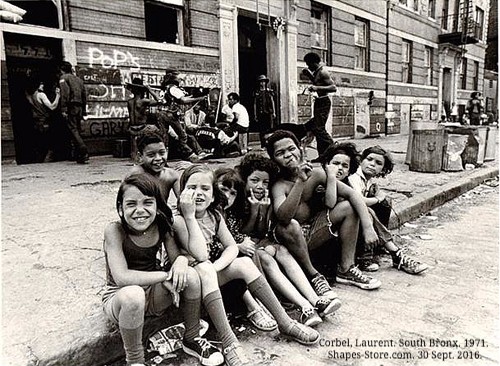With Social Justice At Our Core
Social justice is defined as the way in which human rights are manifested in the everyday lives of people at every level of society. We share a common humanity and thus we share a common responsibility.
The tears from my childhood motivate me today in my healthcare work as it should all of us. I have cried for Andres. I have cried for Eliezer. I have cried for what seems thousands more. Permit me to explain. I readily admit that I have had the good fortune to reach adulthood in the Internet Age where I have been able to reconnect with the close knit group of tween girls and boys I grew up with in the South Bronx, swapping stories, sharing pictures of our children, and celebrating that we had risen above the impoverished circumstances of our youth.
While we celebrated in our reconnection, tragically, there were gaping holes in our collective history. Andres. Eliezer. Kind and gentle young boys with whom we rode bikes, played in the water spraying from open fire hydrants, shared hopes for the future, and imagined we would be friends with forever. Sadly, we can only be friends with them in our memories, as they, like too many children in troubled communities, would not live to see adulthood. One was gunned down right near where he was born. Just like many across the country, where they were born, their socioeconomic background, and even their race stacked the odds against them. The second they were born, their life expectancy was cut short. As such, they were victims of social injustice just by being born Hispanic.
During this time of the year, in which we observe Hispanic Heritage month we should not only celebrate the great contributions of our Hispanic brothers and sisters, but also note that much work is still needed in the community. Did you know that compared to non-Hispanic white children, Latinos are 30% more likely to die as infants and that Hispanic high-schoolers are 60% more likely than white children to attempt suicide?
Growing up, our lives started out hard, and only some of us managed to overcome those initial obstacles and a youth fraught with poverty and danger. And in talking to those close friends who “made it out”, I cannot help but remember the long list of names, too many others to enumerate that did not even survive past their teenage years. Economics, race, and geography, more often than not determined destiny rather than character and kindness. This is the very definition of social injustice, the horrible actuarial mathematics that can pinpoint how long you will live by the circumstances you were raised, your financial well-being, and the color of your skin.
When I visited Cuba six years ago, we asked the country’s Director of the Department of Public Health there to talk to us about Cuba’s health disparities by race and in particular, life expectancy. The director looked at us oddly, even slightly offended that we would ask whether people’s life expectancy differed by race. I remember leaving wondering why aren’t we, here in the United States, more outraged that many of our own fellow citizens are destined by birth to die earlier than others born on the same day by initial factors over which they likely have no control and which simply should not be allowed to doom someone to an abbreviated life? We understand death by tragic injury and old age, but how can we be complacent about death because of one’s race or economic status. That is social injustice at its core. In this vein, consider this paradox. Many Latinos who newly immigrate to the United States are often in good health. It is as they acculturate and stay longer in the United States that often their health worsens. Does that seem just to you?
Gloria Steinem once remarked, “Every social justice movement that I know of has come out of people sitting in small groups, telling their life stories, and discovering that other people have shared similar experiences”. The founding members of UMMA, as such, exemplify the promise of social justice movements. The seven founding members talked amongst themselves during the LA uprisings sharing their stories of and experiences in South LA. When UMMA was founded, community trauma was high in South Los Angeles. There was a rush community-wide towards divestment.
Because social justice was at the root of UMMA’s founding, UMMA took a different tack and instead looked to invest in the community. Twenty years later UMMA continue to invest resources, love and dignity in South Los Angeles. Social justice is defined as the way in which human rights are manifested in the everyday lives of people at every level of society. We share a common humanity and thus we share a common responsibility.
The World Health Organization has stated, “Health has special meaning to individuals and communities at large. Good health is necessary for human well-being, providing intrinsic value for comfort, contentment and pursuit of the joys of life”, but beyond that health is a critical component of social justice, and life expectancy is its ultimate measure.
UMMA is moving into the future with the conviction that every member of our community should have the opportunity to lead a long and healthy life irrespective of their race, creed, color, or the amount of money in their pocket. More than that, ensuring this requires attention to treating everyone with the dignity and respect they deserve. We do not take as a given that people’s life expectancies are pre-determined at health. We can intervene and ensure that people get access to care that allows them to live longer lives and be accorded the social justice they are due.

Pictured: Dr. Cesar Barba cares for a long-time UMMA patient at the Fremont Wellness Center
The love and support of our clients testifies to our commitment, for as one patient observed:
“UMMA is a place that I LOVE! You are treated with kindness and respect. All of the staff are always respectful. Dr. Barba IS THE BEST. Because of his thoroughness he saved my wife’s life by ordering and explaining the importance of routine testing. My wife was diagnosed with colon cancer in 2013 and is now cancer free today. We are eternally GRATEFUL to Dr. Barba and UMMA”.
We will continue to treat our patients with dignity and fight for and address social justice in every part of our being. We also ask that you all also share responsibility in addressing the need for social justice in our communities.


